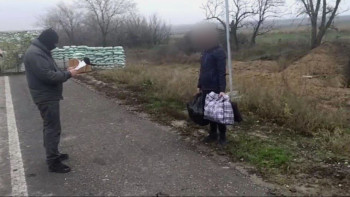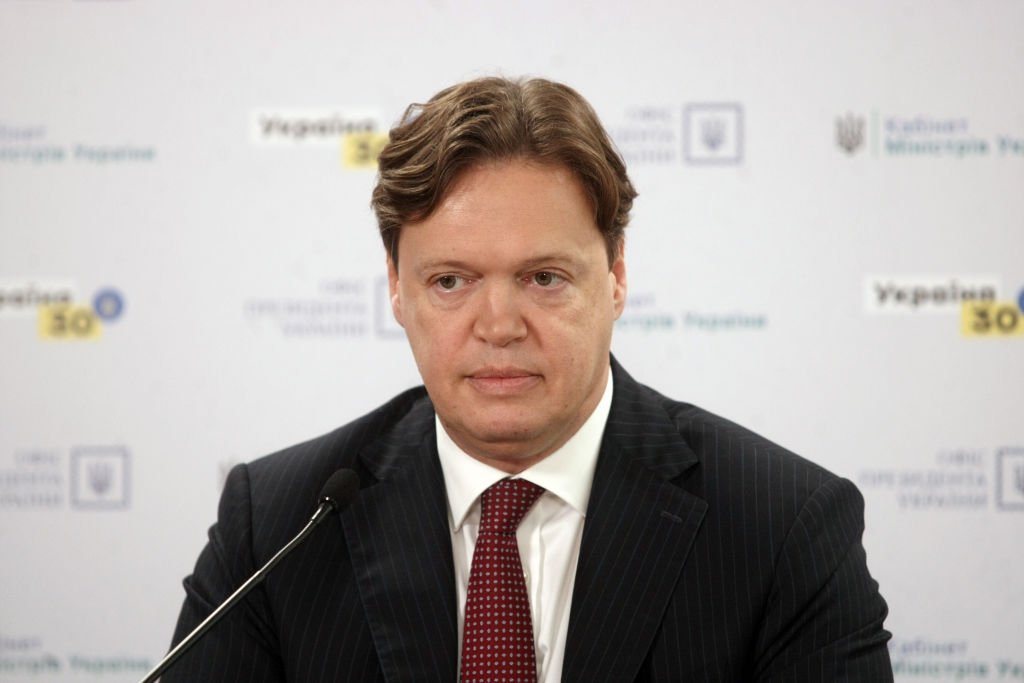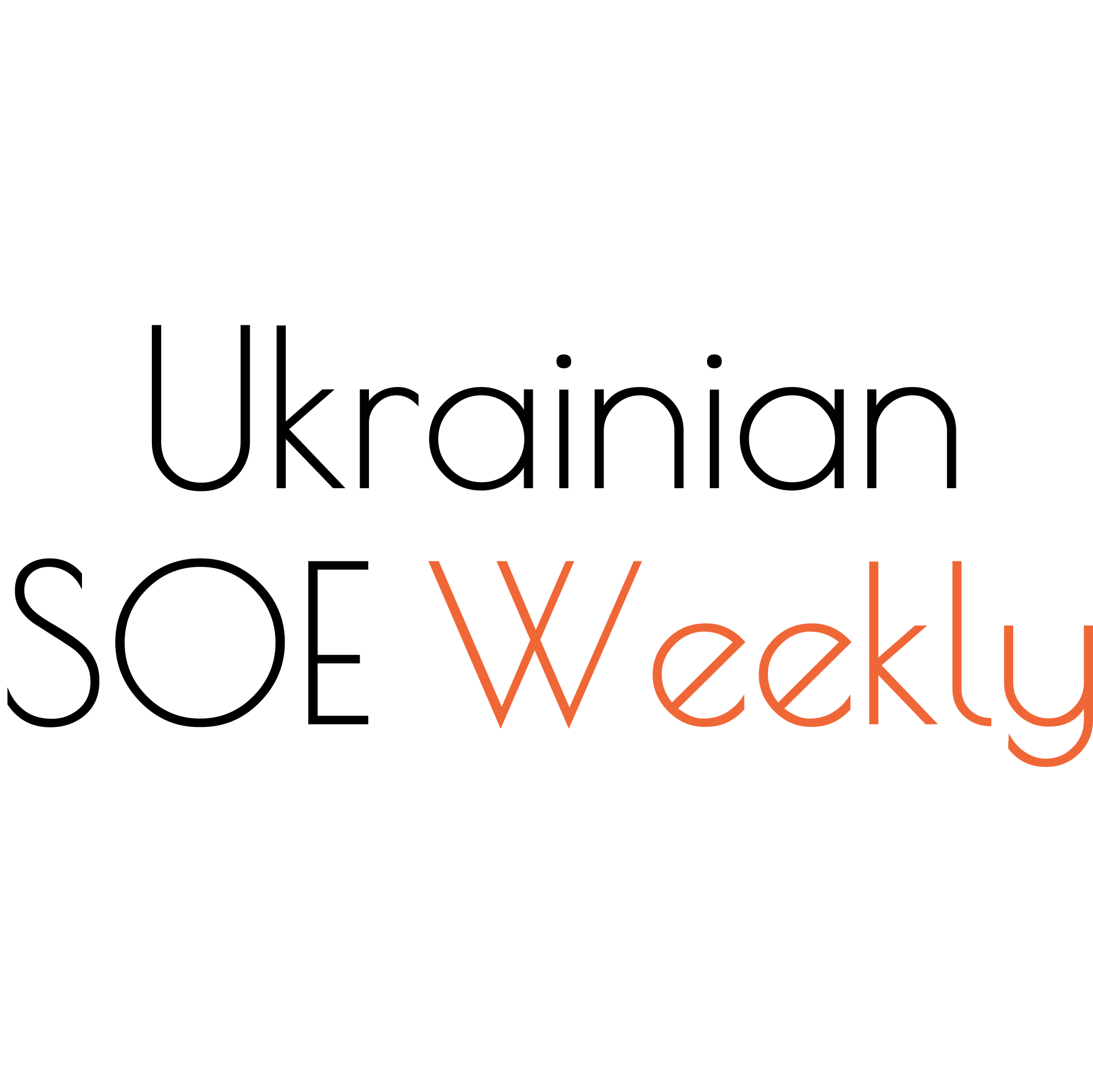Editor’s Note: This is issue 80 of Ukrainian State-Owned Enterprises Weekly, covering events from March 18-24, 2023. The Kyiv Independent is reposting it with permission.
Ukrainian SOE Weekly is an independent weekly digest based on a compilation of the most important news related to state-owned enterprises (SOEs) and state-owned banks in Ukraine. This publication was produced with the financial support of the European Union within the project “Supporting Ukraine in rebuilding and recovery” implemented by the KSE Institute. The contents of this publication are the sole responsibility of the editorial team of the Ukrainian SOE Weekly and do not necessarily reflect the views of the European Union.
Corporate governance of SOEs
Sennychenko, former head of the State Property Fund, accused of stealing Hr 500 million ($13.7 million) from UMCC and Odesa Portside Plant. On March 23, the National Anti-Corruption Bureau (NABU) and the Specialized Anti-Corruption Prosecutor’s Office (SAPO) said that they had exposed a criminal group run by the former head of the State Property Fund (SPFU), Dmytro Sennychenko.
Sennychenko headed the SPFU from September 2019 to February 2022. He filed his resignation letter in November 2021, but the Verkhovna Rada only approved his resignation on Feb. 17, 2022.
According to NABU, the criminal group headed by Sennychenko misappropriated over Hr 500 million ($13.7 million) from Odesa Portside Plant (OPZ) and United Mining and Chemical Company (UMCC) throughout 2019-2021, but it did not end there. The criminal group’s members allegedly received Hr 2 billion ($55 million) in benefits while controlling the Odesa plant, NABU stated.
The Odesa Portside Plant, located in the town of Yuzhne in Odesa Oblast, is a major producer of ammonia and urea. In recent years, the company has operated under tolling arrangements, in which a private company supplies gas to the plant, which it rocesses into fertilisers and returns to the gas supplier. In this arrangement, the supplier owns both the gas and the fertilisers. The Odesa Portside Plant does not pay for the gas and only collects a fee for the processing.
The plant has been slated for privatization since at least 2009. It was named as the benchmark case of large-scale privatization after the EuroMaidan Revolution, but three attempts to sell OPZ have failed.
In their 2018 analysis, SOE Weekly members Andriy Boytsun and Dmytro Yablonovskyi argued that OPZ served as a showcase of how protracted privatization plummets state-owned enterprises’ value due to corruption. (See article here: “Thirteen years of lies and imitation: Does Ukraine still have a chance for real privatization?”)
The UMCC was one of the world’s largest producers of titanium raw materials, accounting for 4% of the global market, measured by titanium ore extraction. It had originally sold its products to more than 30 countries worldwide. The SPFU, then headed by Sennychenko, postponed its privatization three times in 2021. See SOE Weekly’s Issue 57 for a more detailed account on UMCC privatization attempts.
According to NABU, Sennychenko’s accomplices included:
- a person close to the head of the SPFU (co-organizer);
- an adviser to the head of the SPFU;
- two acting CEOs of OPZ (in different periods);
- the acting CEO of UMCC;
- two owners of the company that won the auction for the supply of gas to OPZ; and t
- wo other accomplices.
The acting CEO of OPZ and the adviser to the head of the SPFU were detained. Seven people were notified of suspicion in absentia, including Sennychenko, a person close to him, the acting CEO of OPZ, the acting CEO of UMCC, two owners of the companies that supplied gas to OPZ, and one other individual. Another person was served a notice of suspicion in person, NABU said.
According to the investigation, Sennychenko managed to appoint people loyal to him to the supervisory board of OPZ, 99.56% of which is owned by the state. These people subsequently agreed to appoint a member of Sennychenko’s alleged criminal group as the Odesa plant’s CEO, NABU said.
According to NABU, between May 2020 and October 2021, the suspects illegally extended OPZ’s gas processing deal with a company that they controlled (Agrogaztrading LLC), in order to pay the plant less money.
The members of the criminal organization realized that the constant unreasonable contract extensions could raise questions. For that reason, they arranged a competitive tender for gas suppliers for show, assuming that Agrogaztrading would win.
However, when it did not win, they illegally cancelled the results and had an agreement signed with Agrogaztrading. As a result, OPZ saw its fee for gas processing shrink instead of growing. OPZ incurred unforeseen contractual costs of more than Hr 80 million ($2.2 million), NABU claimed.
The investigation concluded that the tender was deliberately disrupted to allow Agrogaztrading to continue to misappropriate the money, NABU also stressed.
According to NABU, Sennychenko, his close associate, the acting CEO of OPZ, and the owner of Agrogaztrading illegally extended additional agreements on gas processing into urea and ammonia on terms that were unfavourable to OPZ.
The other part of the case concerns UMCC. Sennychenko is suspected of appointing a loyal acting CEO who signed four contracts for the sale of titanium-containing raw materials (ilmenite concentrate) at reduced prices with a Czech company controlled by Sennychenko’s adviser in 2020-2021.
That company then resold this product at market prices. As the investigation established, the ilmenite concentrate was supplied to enterprises in Russia and Russian-occupied Crimea, NABU said. This resulted in losses of over Hr 118 million ($3.2 million) to the state.
Note that according to Ekonomichna Pravda’s (EP) investigation in 2017, Agrogaztrading LLC was allegedly connected to former SPFU head Igor Bilous and former head of the presidential administration, Boris Lozhkin.
NABU also said that Sennychenko posed as a corruption whistle-blower to eliminate a potential competitor (another company that wanted to get the gas processing deal with OPZ), filing a NABU statement claiming that he was offered a bribe on June 22, 2020.
After that, Sennychenko allegedly continued to engage in the said crimes. The next day, on June 23, 2020, Sennychenko ensured that a new contract was signed between OPZ and Agrogaztrading on terms unfavourable to OPZ, NABU said.
So far, there has been no public reaction from Sennychenko. EP contacted him for comment, and he replied that he would “definitely provide a comment after consulting with the legal team,” which he said would take several days.
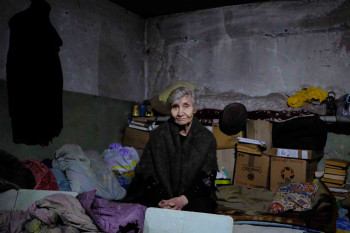
GTSOU’s new CEO appointed after the company spent an entire winter with no permanent CEO. On March 21, the supervisory board of the Main Gas Pipelines of Ukraine – Mahistralni Gazoprovody Ukrainy (MGU) appointed Dmytro Lyppa as the new CEO of the Gas Transmission System Operator of Ukraine (GTSOU). The Cabinet approved his candidacy on March 17.
According to Ukraine’s current law, the CEO candidate for GTSOU must first be approved by the Cabinet of Ministers, and only then appointed by MGU’s supervisory board.
Prior to his appointment to GTSOU, Lyppa worked as the CEO of Kamet-steel, part of the Metinvest group.
Lyppa stepped down from Kamet-steel on Dec. 26, as the competitive CEO selection was still underway.
In Issue 78, we reported that the MGU’s former board chair, Huberte Bettonville, said that the MGU selected Lyppa as CEO on Dec. 31, but he could not be appointed because decisions by the Energy Ministry and the Cabinet were still pending, raising questions about the independence of the MGU.
It is remarkable that Lyppa resigned from his previous job without having any confirmation of his GTSOU appointment.
In SOE Weekly (Issue 76), we reported that the supervisory board of the MGU had not yet appointed a new CEO for the GTSOU, more than five months after the dismissal of the previous CEO, Serhiy Makogon, in September 2022.
The MGU’s supervisory board announced a competitive CEO selection on Nov. 25.
In Issue 67, we reported that the candidate list leaked to the media. According to Ekonomichna Pravda’s (EP) sources, 19 candidates were longlisted by Dec. 19. Lyppa was also on this list. The submission deadline was Dec. 12, suggesting that all applicants were screened, and the longlist was drawn up in less than a week.
In Issue 67, we also reported that the previous CEO, Makogon, was dismissed by the MGU’s supervisory board on Sept. 16. Makogon was succeeded by acting CEO Paweł Józef Stańczak. Prior to that, Stańczak worked as GTSOU’s Deputy CEO for Development and Transformation.
Makogon attributed his dismissal to his active position in promoting the corporate governance reform of the GTSOU (opposed by MGU’s supervisory board), which implied the liquidation of the MGU and the establishment of an independent supervisory board at the GTSOU itself.
In Issue 78, we reported that MGU’s board chair, Huberte Bettonville, said that MGU selected Lyppa as CEO on Dec. 31, but he could not be appointed because decisions by the Energy Ministry and the Cabinet were still pending, raising questions about the independence of the MGU.
According to media reports, in June 2022, MGU’s supervisory board formally proposed Serhiy Oleksiyenko and Andriy Khomenko as CEO candidates without a competitive selection, but the Cabinet did not approve either.
The Cabinet appoints Yevhen Lyashchenko as the new CEO of Ukrzaliznytsia; former CEO Kamyshin appointed as Minister of Strategic Industries. On March 21, the Cabinet of Ministers dismissed Kamyshin as Ukrzaliznytsia’s CEO, and appointed Yevhen Lyashchenko as the new CEO for the next two years. Previously, Lyashchenko served as Ukrzaliznytsia’s executive board member.
In SOE Weekly (Issue 77), we reported that according to Forbes Ukraine, Oleksandr Kubrakov, Deputy Prime Minister for Restoration of Ukraine, asked Kamyshin to resign two weeks before Kamyshin announced it. The President’s Office was surprised, but the president approved the dismissal, Forbes wrote.
Apparently, Forbes was referring to an informal approval, since formally, the President has no powers with respect to the appointment or dismissal of the CEO of Ukrzaliznytsia.
According to Forbes Ukraine’s sources in Ukrzaliznytsia, “Kubrakov believes that Lyashchenko will do a better job than Kamyshin.” The media said that Kamyshin proposed four candidates to succeed him, and Kubrakov immediately chose Lyashchenko, who had been responsible for personnel and financial issues.
In normal corporate practice, the supervisory board should ensure appropriate succession planning in the company. This means that the supervisory board has to establish a list of successors in case of the CEO resigning early.
When announcing the new CEO’s appointment on his Facebook page, Kubrakov added that Lyashchenko had three key tasks:
- Unbundle Ukrzaliznytsia’s passenger transportation, cargo transportation, production, and infrastructure into separate businesses, and ensure compliance with the European legislation, especially in terms of safety and inclusivity. (It is unclear what Kubrakov meant by this.)
- Implement the investment programme, including developing export routes, creating the necessary infrastructure, electrifying necessary railway sections, and more. (We are not aware of Ukrzaliznytsia’s investment programme as such. An investment programme is typical for regulated industries, which normally have an independent regulator that approves such a programme for the regulated company.
- Although Ukrzaliznytsia is a monopolist, Ukraine’s transportation industry has no independent regulator, and the Ministry of Communities, Territories, and Infrastructure Development, led by Kubrakov, continues to serve as the tariff-setting body.)
- Break even (in terms of financial performance).
Kubrakov did not mention when these tasks had to be implemented, including when Ukrzaliznytsia should break even or when it should be unbundled. In normal corporate practice, the CEO’s tasks should be formalized and linked to the company’s strategy.
In SOE Weekly (Issue 72), we reported that Ukrzaliznytsia took a Hr 11 billion ($300 million) loss in 2022 and expected twice as much in losses in 2023.
In Issue 76, we reported that on Feb. 21, Oleksandr Kamyshin, then CEO of Ukrzaliznytsia, stated that Ukrzaliznytsia may establish a company to transport cargo in Europe by the end of 2023.
A week later, Kamyshin announced that he was stepping down (see our Issue 77). Kamyshin said he would head up Ukrzaliznytsia’s European integration office in Europe, per his joint decision with Kubrakov. It is unclear whether Kamyshin was referring to an existing European office of Ukrzaliznytsia, one that would yet be established, or the above-mentioned European cargo company.
On March 3, President Volodymyr Zelensky appointed Kamyshin as his advisor, as we reported in Issue 77.
On March 21, the Verkhovna Rada appointed Kamyshin as the new Minister for Strategic Industries of Ukraine.
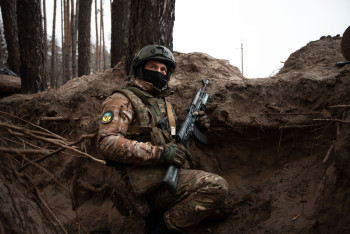
The Cabinet approves the corporatization of Ukroboronprom. According to a release of the Cabinet of Ministers, on March 21, the Cabinet approved the conversion of the State Concern Ukroboronprom into a joint-stock company called Ukrainian Defense Industry.
The Cabinet’s resolution that the above release refers to was not publicly available at the time of this writing.
The state owns 100% of the new company’s shares. The charter of Ukrainian Defense Industry and the regulations governing its supervisory board were also approved. The company’s authorized capital of Hr 237 million ($6.5 million) has been established through the transfer of assets from Ukroboronprom.
Neither the charter nor the board regulations that the above release refers to were publicly available at the time of this writing.
As of today, 27 Ukroboronprom member companies have already been converted from state-owned and/or state-financed (i.e., uncorporatised) enterprises into joint-stock companies or limited liability companies. Another 29 are in the process of conversion, Ukroboronprom said.
In SOE Weekly (Issue 79), we reported that corporate governance reform of SOEs – including Ukroboronprom – is among the government’s priorities for 2023. The establishment of Ukrainian Defense Industry was part of these plans.
The concept of corporate governance reform of Ukroboronprom, including its target model and detailed action plan, was drafted by Andriy Boytsun, Oleksandr Lysenko, and Dmytro Yablonovskyi, members of the SOE Weekly team, as well as the international law firm Kinstellar, in March 2020. For a discussion of these documents, see the OECD Review of the Corporate Governance of State-Owned Enterprises in Ukraine.
In Issue 59, we reported that in July 2021, the Verkhovna Rada adopted Law 1630-IX (previously known as Draft Law No. 3822) which laid the groundwork for Ukroboronprom’s transformation.
On Dec. 9, 2021, the Cabinet of Ministers approved resolutions and ordinances to convert Ukroboronprom into a joint-stock company. The Cabinet also approved the conversion of Ukroboronprom’s 43 uncorporatised enterprises into joint-stock companies or limited liability companies fully controlled by the state.
Zelensky signs law on Energoatom’s corporatization. On March 17, President Volodymyr Zelensky signed a law on the corporatization of the state nuclear operator Energoatom.
In SOE Weekly (Issue 79), we reported that corporate governance reform of Energoatom is among the government’s priorities for 2023. According to the Cabinet’s Priority Action Plan, Energoatom is to be converted into a joint-stock company by May 2023. The nuclear power operator is also slated to receive a competitively selected supervisory board with an independent majority. The deadline is November 2023.
In SOE Weekly (Issue 74), we reported that the Verkhovna Rada passed Draft Law No. 8067 (in the second reading) on the corporatization of Energoatom on Feb. 6.
For a detailed account on the corporatization of Energoatom, see SOE Weekly’s Issues 41, 53, 58, 69, 74, and 79.
The Cabinet approves new members of Ukrposhta’s supervisory board. On March 21, the Cabinet of Ministers announced that it approved five independent members and two state representatives as members of the state postal service Ukrposhta’s supervisory board.
According to the Cabinet’s release, the decision was made at a meeting on March 21.
The Cabinet’s decision that the above release refers to was not publicly available at the time of this writing.
According to the Cabinet, the independent members of the supervisory board are:
- Rinat Abdrasilov (senior partner of Cambridge Management Consulting, a UK-based management consultancy);
- Jakub Karnowski (former CEO of the Polish State Railways (PKP S.A.), where he successfully unbundled the company and finalized the privatization of PKP Cargo, the cargo arm of PKP S.A.; he has also served as an independent member of various supervisory boards in Polish companies and banks, as well as on the supervisory boards of Ukrposhta and Ukrzaliznytsia);
- Gary John Carroll (the U.K. government’s Companies House lists three persons named Gary John Carroll; LinkedIn lists none).
- Olena Malynska (former CEO of Kredyt Dnipro Bank);
- Ihor Mityukov (Minister of Finance of Ukraine in 1997-2001 and head of the Ukrainian representative office of Morgan Stanley in 2008-2014).
In November 2019, the Cabinet of Ministers appointed Mityukov as an independent member of Oschadbank’s supervisory board, but the NBU rejected his candidacy in March 2020. The NBU said that Mityukov did not meet independence requirements because he was a supervisory board member of the National Depository of Ukraine, in which Oschadbank holds a significant stake.
The two state representatives are:
- Natalia Bernatska (former secretary of the Central Election Commission of Ukraine and former First Deputy Minister of Justice).
In January 2020, NABU served Bernatska and others a notice of suspicion of misappropriating and legalizing more than Hr 54 million ($1.5 million) from the state budget in the case of Zolotyi Mandarin Oil LLC.
On Feb. 4, 2020, the High Anti-Corruption Court (HACC) set bail of Hr 7 million ($191,000) for Bernatska. She was ordered to surrender her passports and not to communicate with other suspects or witnesses in the case. Her lawyers filed appeals, but the HACC decided to uphold the previous ruling of the investigating judge.
In a comment to Forbes Ukraine, Benatska said that the European Court of Human Rights (Grand Chamber) ruled that NABU had violated international law, pressured witnesses to unlawfully prosecute a person, and refused to lift the immunity of lawmaker Heorgiy Logvynskyy, the main suspect in the case.
After that, Bernatska reasoned, the case had no prospect any longer. Her individual complaint about the violation of the Convention is being considered by the European Court, she added. It is not clear what Convention Bernatska referred to.
“After that, I was already a supervisory board member at a commercial bank, and there were no reputational issues. There is a presumption of innocence In Ukraine, so legally speaking it is a matter of whether or not the person has a criminal record,” Bernatska said. - Kristina Prasolova (former Deputy Minister of Economy).
According to the Ministry of Economy, a total of 131 people from all over the world applied.
With the help of international partners and executive search company Boyden Ukraine, the SOE Nomination Committee interviewed 18 shortlisted candidates for seven positions at the final stage of the selection process, the ministry said.
The Ministry of Economy had announced a competitive selection for independent members of Ukrposhta’s supervisory board on Jan. 14, with a submission deadline on Feb. 14.
As we reported in SOE Weekly (Issue 69), the Ministry of Infrastructure re-appointed Ukrposhta’s supervisory board members four times in 2022.
It is unclear why the government needed more than a year to complete the competitive selection for Ukrposhta.
By law, government agencies that own state companies – such as the Ministry of Infrastructure in the case of Ukrposhta – could not single-handedly extend SOEs’ supervisory board members’ terms before the secondary legislation changed on May 31.
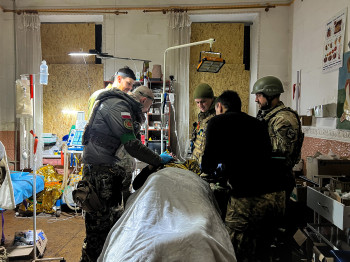
Ukraine must finish forming supervisory boards at state-owned banks to comply with the new IMF programme. According to Ekonomichna Pravda (EP), the potential International Monetary Fund (IMF) programme would include several requirements for Ukraine.
As of now, IMF and Ukrainian authorities have reached a staff-level agreement on a $15.6 billion Extended Fund Facility (EFF) Arrangement, which is still subject to approval by the IMF’s Executive Board.
The final list of requirements and structural benchmarks of this programme would be published along with the Memorandum on Economic and Financial Policies, when/if the EFF programme is approved by the IMF’s Executive Board. Some of the IMF’s requirements are already known, according to the EP.
The EP said that one of these requirements is to complete the selection and appointment of supervisory board members of state-owned banks. So far, the government has appointed the boards of PrivatBank (see SOE Weekly’s Issue 69 for detail) and Ukrgasbank (see our Issues 73 and 75 for detail). Competitive selections of independent board members for Ukreximbank and Oschadbank are still pending.
The competitive selections for PrivatBank, Oschadbank, and Ukreximbank started simultaneously on Oct. 11, with application deadlines of Nov. 11.
There have not yet been any public updates on the selections for Oschadbank or Ukreximbank. The reasons for the delay are unknown.
Banks
Banks required to disclose information about customers with ties to Russia. On March 17, the National Bank of Ukraine (NBU) announced that Ukrainian banks will be required to identify and document whenever their clients or counterparties have ties to Russia.
The NBU said it has the right to request any bank’s information about Russia-linked clients and counterparties. Collecting and documenting this information would help to increase the transparency of bank customers with ties to Russia and reveal the hidden presence of Russia in the Ukrainian market, the NBU explained.
The NBU’s resolution follows a similar decision by the National Securities and Stock Market Commission of Ukraine (NSSMC), adopted a month ago.
In SOE Weekly (Issue 76), we reported that, on Feb. 21, the NSSMC established a procedure for security issuers to disclose information on their ties with risk-zone countries, namely Russia, Belarus, Iran, and North Korea.
The NSSMC’s new decision mandates that security issuers (which include SOEs and state-owned banks registered as joint-stock companies) must submit this information to NSSMC by April 30.
The same requirement is included in the new draft of NSSMC’s Regulation on Disclosure.
The initiative to establish disclosure rules for business ties with the aggressor state and its satellites evolved from the International Working Group on Russian Sanctions, driven by its members Oleksandr Lysenko and Andriy Boytsun. Later, Lysenko developed specific disclosure rules together with the NSSMC.
These rules are meant to raise awareness of any ties to aggressor states among companies and banks’ investors, creditors, clients, and other stakeholders. Exposing such business ties can increase the reputational risks for these organizations to a prohibitive degree, forcing them to sever their links with Russia and its satellites.
Note thatthe NSSMC’s decision and draft Regulation on Disclosure only cover the NSSMC’s supervisees, that is, security issuers. In other words, it does not cover uncorporatized SOEs (such as state unitary enterprises) or private companies that do not issue securities. A similar legal framework for these entities needs to be developed and adopted.
Defense
Ukroboronprom sends the first batch of 122 mm artillery shells to the Armed Forces of Ukraine. On March 22, Ukroboronprom announced that it shipped the first batch of domestic 122 mm shells to the Armed Forces, which it had produced abroad.
Ukroboronprom has set up production of 122 mm artillery shells abroad in cooperation with a NATO member state. The specific country was not revealed.
The company clarified that the 122 mm shell is used by D-30 towed howitzers (maximum range of 15,400 metres) and 2S1 Gvozdika self-propelled artillery systems (maximum range of 15,200 metres).
In SOE Weekly (Issue 74), we reported that Ukroboronprom announced that it had begun producing 120-mm mortar shells jointly with an undisclosed NATO member state. According to the company, the 120-mm mortar shell is the first product to be jointly produced by Ukraine and a NATO member state. Recently, Ukroboronprom signed a contract with Ukraine’s Defence Ministry for the supply of these munitions.
In Issue 79, we reported that Ukroboronprom had begun producing 125-mm shells for tanks jointly with a NATO member state. The first batch of 125-mm shells for T-64, T-72, and T-80 tanks, which are used by the Armed Forces of Ukraine, has already been delivered, according to Ukroboronprom.

Infrastructure
Former Infrastructure Minister Andriy Pyvovarsky posted bail of Hr 10 million ($273,000), the ex-official wrote on his Facebook page on March 17.
Pyvovarsky has been charged with abuse of power.
In SOE Weekly (Issue 79), we reported that on March 16, the investigating judge of the High Anti-Corruption Court (HACC) imposed a bail of Hr 9,997,900 ($273,000) on Pyvovarsky.
According to the National Anti-Corruption Bureau of Ukraine (NABU), in 2015, Pyvovarsky issued an order allowing private companies to charge half the harbour dues at Pivdenny seaport. The water area of this port is state property in the use of the Ukrainian Sea Ports Authority (USPA). Only a state enterprise has the right to charge harbour dues, NABU said.
Pyvovarsky responded that according to the Law “On Sea Ports of Ukraine,” proceeds from tonnage tax are distributed between the user of the port’s harbour (in this case, USPA) and the owner of the operational harbour (in this case, private company TIS). He argued that the ministry’s order was therefore not a crime. See SOE Weekly’s Issue 76 for more details.
The HACC ordered Pyvovarsky to pay the full amount within five days of the court ruling.
He must also abide by the following obligations:
- Appear at the request of the investigator, prosecutor, detective, or court;
- Notify the investigator, detective, prosecutor, and court of any change of place of residence and place of work, as well as any travel outside Kyiv and Kyiv Oblast;
- Refrain from communicating with persons specified in the court ruling.
The obligations are in force for two months, i.e., through May 16.
In SOE Weekly (Issue 76), we reported that on Feb. 22, NABU and the Specialized Anti-Corruption Prosecutor’s Office (SAPO) served Pyvovarsky a notice of suspicion of abusing his powers, which allegedly caused more than $30 million in damage in 2015. Pyvovarsky served as the Minister of Infrastructure in the Arseniy Yatsenyuk government from December 2014 to April 2016.
His First Deputy, Volodymyr Shulmeister, who had been the First Deputy Minister of Infrastructure and chaired the Ministry’s Tariff Council, was also charged in absentia.
In Issue 77, we reported that Pyvovarsky wrote on his Facebook page that NABU asked the court to set his bail at Hr 20 million ($547,000). Pyvovarsky emphasized that he fully disagreed with the charges and the motion to set bail.
